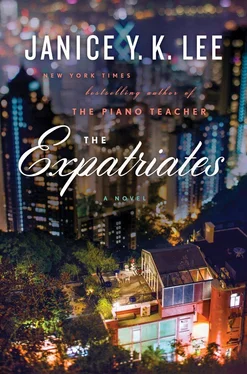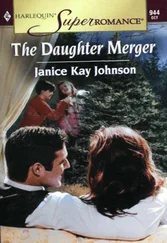Hilary is from San Francisco, but not the San Francisco where everyone seems to be hiking or biking while chugging sports drinks, or doing some other sort of physical outdoor activity, and then talking about it endlessly. When people find out she is from the Bay Area, their eyes light up and they talk about this hike or that park, and she says, “Oh, I don’t know from that.” Or they talk about Napa Valley and the vineyards, and the cheese! “I like it,” she says. She is not effusive, the way people seem to want everyone to be, full of excitement and vim. She grew up just outside San Francisco, where her parents live still, and she moved to the city when she got her first job in PR.
She spent her early twenties working and then met David at a friend’s wedding. Everything according to plan. They married when she was twenty-eight, ten years ago. He was an associate at a law firm with offices all over the world, and he had always wanted to travel and live abroad. She said she would go with him anywhere.
After moving, there was a new vocabulary to learn: “lifts” instead of “elevators,” “flats” instead of “apartments”—vestiges of the British colony Hong Kong used to be. Also, instead of a housekeeper, the province of only the rich in America, everyone in her new world had a live-in domestic helper from the Philippines or Indonesia, who took care of all the housework and babysitting for the astounding sum of US$500 a month. They live in a particularly homogeneous enclave of expatdom, Repulse Bay, where half the people they see are white, and more than that are not locals, be they Chinese American or Japanese or Filipino. In this particular corner of Hong Kong, newly arrived Americans bump into one another at the supermarket and talk of their sea containers, arriving soon with their belongings, how to find a travel agent, how to get a driver’s license. The husbands get up in the morning, put on their suits, and take taxi-shares or minibuses or are driven to work in the tall, shiny office buildings in Central, while the women putter around the house before getting ready for their tennis match or going in to volunteer at the library, since they mostly had to give up their jobs when they moved. It all feels a bit like The Truman Show .
Still, even within this sphere, Hilary soon came to see the very fine distinctions.
There were the new expats, who signed up for courses on Chinese cooking at the MacDonnell Road YWCA, took the train to Shenzhen to buy fake DVDs and cheap dinnerware, went to the Art Village to have paintings copied cheaply for their apartments (“A funny Lichtenstein for the bathroom is so cute, don’t you think?”), and did first vacations in Phuket. Then there were the intermediate expats, who went to Bhutan to trek and Tokyo to eat and eschewed the touristy. They had favorite hikes. They threw out the IKEA furniture and bought real antiques. They had some local friends, a Mandarin nanny, and preferred to eat at restaurants secreted away in office towers. They started small businesses, like children’s clothing or jewelry design, all made in China, and sold their wares at the holiday gift fairs that sprouted up in hotel ballrooms around December. And then there were the old Hong Kong hands, who had racked up ten, twenty years in the colony. They were mostly in Hong Kong for good, sometimes had given up citizenship in their former countries. They owned their homes, always bought on a dip in the property market, didn’t talk to newcomers, and smiled blankly when people brought up newbie topics like schooling and medical care, as if they had mentioned something as unspeakable as their bathroom habits.
Of course, there were the international lines as well. The Japanese were a discrete group and rarely mingled, playing baseball and soccer together every weekend at the municipal athletic fields, with their neatly packed bento lunches and peculiarly named sports drinks. The French and Koreans were a bit more porous, the English perhaps a bit more, and the Americans most of all, although, after a few years of socializing strenuously with everybody, people tended to slip back into their national identities. It was just so exhausting to have to explain what a state school was, or how football and soccer were different. After a few years, even the most well-meaning Americans found themselves calling only other Americans and doing Super Bowl breakfasts (due to the time difference) and Thanksgivings at the club with other families. You found yourself somehow more American than ever.
Hilary has become firmly ensconced in her new life, one she slipped into frighteningly easily, as David’s career flourished in Asia over the past eight years. He is now one of the most senior attorneys at his firm. Hilary has servants — a domestic helper and a driver — a membership to a country club, where she plays tennis with other sun-visored ladies, and afterward, showered and dried and clad in cool summer shifts, they order Greek salads and salted French fries and sip pinot grigio as the sun sets and their husbands work and they gossip and complain and otherwise act as if life has always been this way.

And now there is Julian.
She first saw him a few months ago while on a tour with the American Women’s Association, which she joined back when she was new to Hong Kong. She had seen a flyer for the association at the American Club. There were photos of smiling women eating Chinese food, holding a bake sale, at a costume party. The aura of nonjudgmental acceptance drew her in. She stuck with AWA over the years, taking part in some of their activities, and was on their e-mail list. She decided to sign up for an introduction to Hong Kong Social Services, where they learned about different situations and how they might volunteer and be useful.
They saw an orphanage, or what they called a child-care center, as well as a small group home. The child-care center was in Kowloon, in a massive concrete building. Hilary found herself on a tour with five other well-meaning American women clutching Starbucks coffee cups. Amid the powerful scent of Dettol — disinfection was a religion in Hong Kong after SARS — Belle Liu, the bespectacled representative who sported the inexplicably mannish cut of so many local women, explained the different areas in the blunt, accented English Hilary often found startling, the locals not yet having adopted politically correct terminology.
“This for the retard children,” she said, gesturing to a padded room where two boys in helmets rocked back and forth while a woman read a newspaper in the corner.
“Sometimes mother will not come back for one year,” Belle said, “and we don’t know if the child is abandon or not.”
“Is there a cutoff date for when you would find the child a new home?” a woman asked.
Belle went into a lengthy explanation of government regulations and the forms the women were supposed to sign when they left their children. However, she said, very few complied. They were mothers, after all, and most could not bring themselves to give up their children if they weren’t made to. They imagined a future when they would be better off, have more, and reclaim their child. So then the children languished in legal limbo, unable to be put in the adoption pool, unable to go home. Like many locals in government administration, Belle was very excitable about rules and regulations and following them to the letter.
Another room had five baby swings and an equal number of foam seats for infants who could not sit upright yet. There were no children in that room — down for naps, Belle explained.
The women were kind, the furniture and equipment were clean, the endeavor was wholly adequate, and yet, of course, the whole building reeked of sad desperation. Hilary walked through the fluorescent-lit, linoleum-floored hallways in a daze, looking at all the abandoned, luckless children.
Читать дальше













